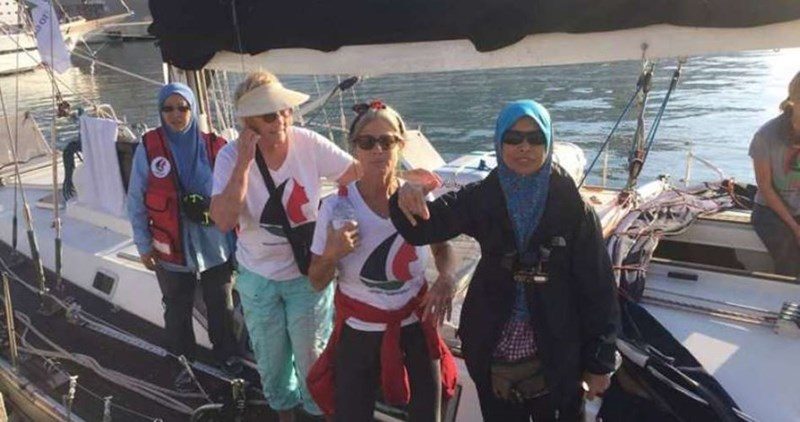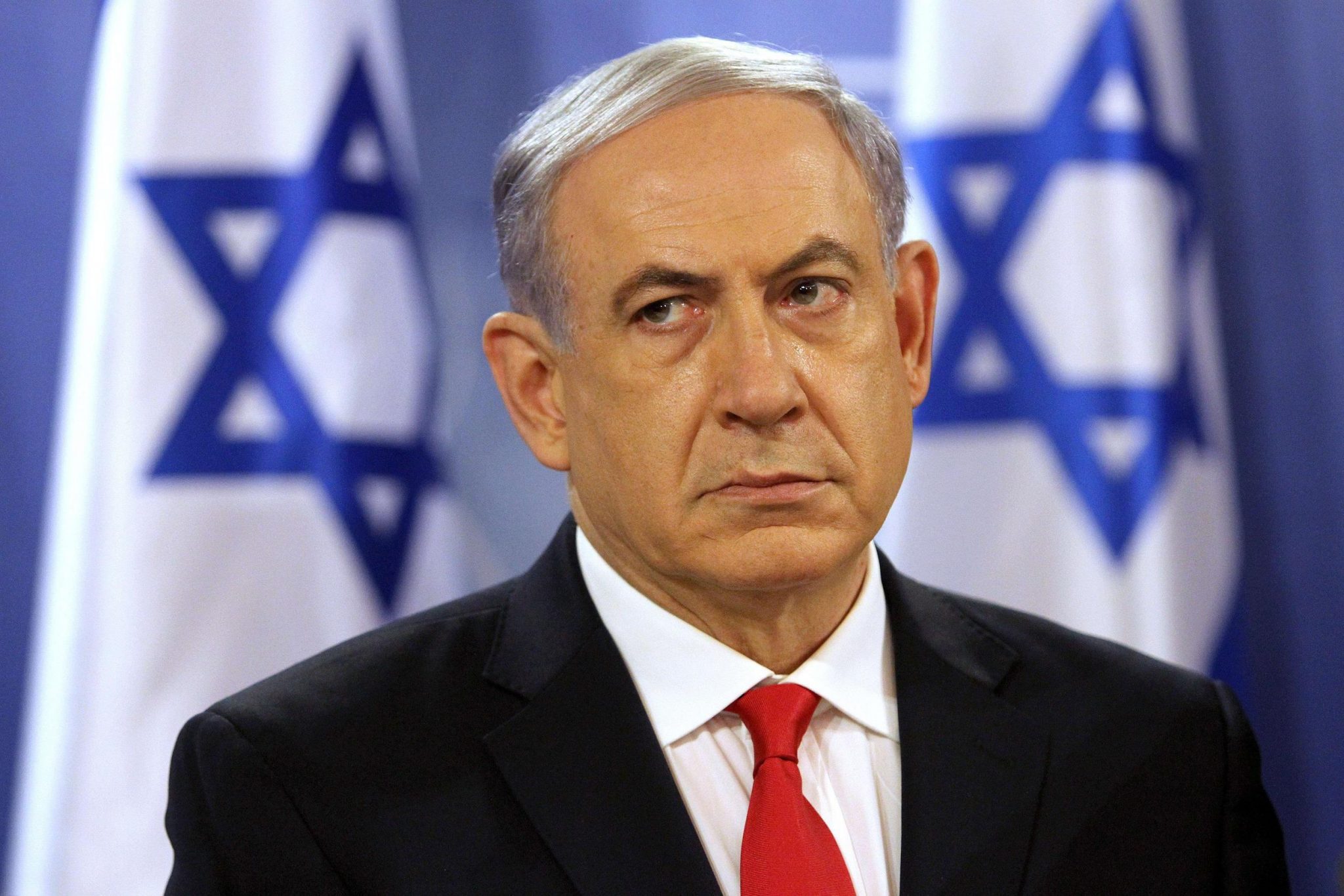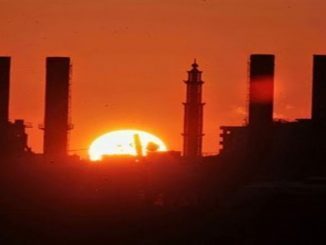
The pro-Gaza women’ boat Zaytouna-Oliva at dawn Thursday docked at the Port of Ashdod after it was hijacked and towed the day before by the Israeli army navy.
According to the Israeli media, all the female activists aboard the vessel have been detained and will be interrogated today by the police before deporting them via Ben-Gurion Airport. The Israeli security authorities also intend to blacklist the activists and ban their entry permanently to Israel and the occupied Palestinian territories. “At the behest of the political leadership and after calls to the Zaytouna boat by the navy to stop, which were rejected, naval forces took control of the boat before it arrived at the Gaza Strip,” according to a statement by the Israeli army.
“The process of taking control was short and resulted in no injuries. The response was implemented after many calls to the sailors aboard the flotilla at various distances in the sea. After the sailors indicated that they had no intention to cooperate and to accept the offer to sail to Ashdod, the decision was taken to take control and to prevent it from breaching the legal naval blockade and to divert it to the Ashdod port,” the Israeli statement continued.
Female activists who were sailing on board the all-women solidarity ship “Zaytouna” heading towards the besieged Gaza Strip are currently being detained in the Israeli prison of Givon, the Israel Prison Service (IPS) said on Thursday.
The 13-person crew of the Zaytouna — which means “olives” in Arabic — was intercepted by Israeli naval forces on Wednesday as their boat entered Israel’s unilaterally declared buffer zone or “military exclusion zone,” off the coast of Gaza.
The women were then detained and taken to the Israeli port of Ashdod, before being taken to detention facilities.
IPS spokesman Assaf Librati told Ma’an that 11 of the women were being held in the Givon prison in central Israel as of Thursday afternoon, saying that he was not immediately aware of the whereabouts of the two other crew members.
The Zaytouna’s crew included Nobel Peace Prize recipient Mairead Maguire, New Zealand parliamentarian Marama Davidson, Algerian MP Samira Douaifia, and Swedish politician Jeannette Escanilla.
As contradictory information emerged on social media over whether the female activists would be immediately deported, the spokesman said that IPS was still awaiting instructions on their case.
Early on Thursday afternoon, the Women’s Boat To Gaza group said on social media that they didn’t have any information on the fates of the activists, and that lawyers and consuls had not yet been able to see them.
Librati said that the women had been visited by representatives from their consulates, but that he was not aware of any of the women having been in touch or met with a lawyer.
The Palestinian Authority (PA) condemned the Israeli takeover of the Zaytouna, saying that Israel’s actions against nonviolent foreign activists revealed its “occupational mentality,” its rejection of peace, and its willingness to escalate violence.
Palestinian Legislative Council member Hanan Ashrawi called the detention of the 13 women “the latest example of Israel’s unbridled violations” on Thursday.
“Israeli actions constitute a deliberate and crude exercise of power and an attempt to isolate the Palestinian people from the rest of the world,” she added. “It further seeks to render solidarity with the Palestinian people and support for their nonviolent resistance against the military occupation a costly and risky endeavor.”
Meanwhile, the Spanish government reminded Israeli authorities of Spain’s support of the international laws regarding freedom of navigation, according to Spanish news agency EFE.
One of the flotilla crew members, Sandra Barrilaro, is a Spanish photographer who has notably co-written a book on photography of Palestine prior to 1948.
The Zaytouna was expected to arrive in the besieged Gaza Strip on Wednesday evening after setting off from the shores of Barcelona, Spain last month as part of the larger Freedom Flotilla.
Issam Yusif, head of the world popular committee for the support of the Gaza Strip, said in a statement in August that the initiative would help to highlight the Palestinian struggle for freedom and an independent state, as well as the everyday Israeli violations of international law and the Palestinian right to freedom of movement.
The Freedom Flotilla initially consisted of another solidarity ship called “Amal” — meaning “hope” in Arabic — but according to the committee the Amal ship did not participate in the solidarity mission after facing “unforeseen circumstances” that were out of the control of the organizers.
The flotilla is the fourth of its kind since 2010, when the first Freedom Flotilla was brutally attacked by Israeli naval forces, who killed ten Turkish activists aboard the Mavi Marmara ship.
No Israelis were ever charged for the killings on the Mavi Marmara, despite a case being filed at the International Criminal Court (ICC) charging Israeli officials with war crimes.
An agreement in June between Israel and Turkey, which reportedly included a commitment by Turkey to pass a law voiding all old lawsuits against the Israeli soldiers who participated in the raid on the aid flotilla, ended six years of diplomatic strife following the attack.
The Gaza Strip has suffered under an Israeli military blockade since 2007, when Hamas was elected to rule the territory. Residents of Gaza suffer from high unemployment and poverty rates, as well as the consequences of three devastating wars with Israel since 2008, most recently in the summer of 2014.
The 51-day Israeli offensive, termed “Operation Protective Edge” by Israeli authorities, resulted in the killings of at least 1,462 Palestinian civilians, a third of whom were children, according to the UN.
The UN has said that the besieged Palestinian territory could become “uninhabitable” by 2020, as its 1.8 million residents remain in dire poverty due to the Israeli blockade that has crippled the economy, while continuing to experience the widespread destruction wrought by three Israeli military offenses, and the slow-paced reconstruction efforts aimed at rebuilding homes for some 75,000 Palestinians who remain displaced following the last Israeli assault in 2014.



